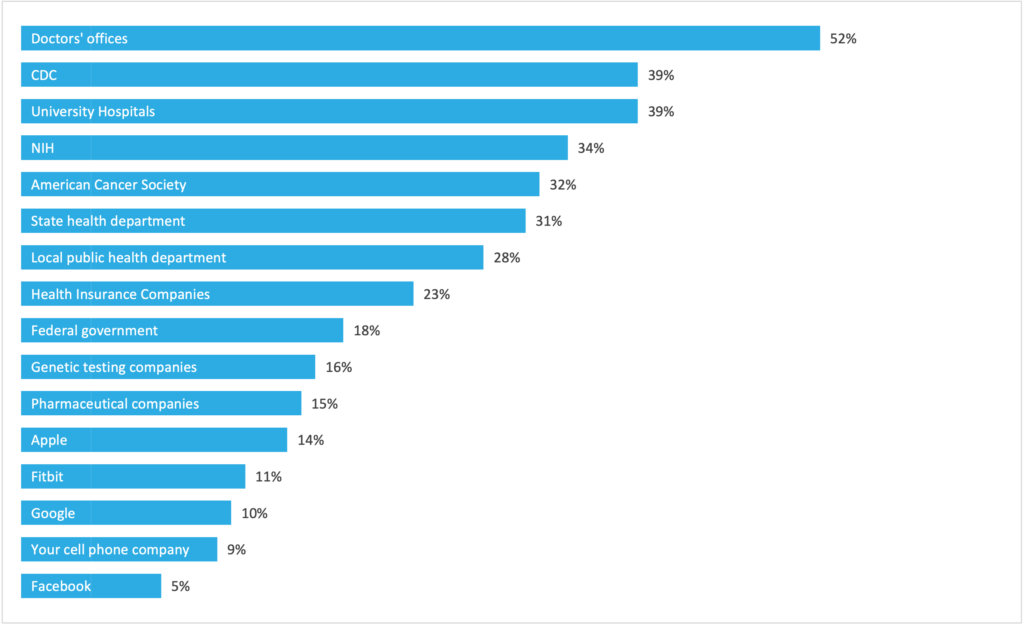
One Agency’s Maps Are Known For Documenting Redlining
But Many Other Factors Played a Role in Denying Loans, LDI Fellow Says
Population Health
Blog Post

When consumers use digital technology, they leave behind digital footprints that can reveal a lot about their health. These digital footprints have led to enormous possibilities to leverage data to improve health for individuals and communities. However, the widespread collection and use of data, especially by startups and large tech companies, can also create privacy concerns. Unlike health care data that is protected by federal privacy standards, health data form consumer devices and other technology is not protected. As technology and data assume a greater role in consumer lives, who do consumers trust with their digital health data?
In a new Journal of General Internal Medicine study LDI Senior Fellows Carolyn Cannuscio, Nandita Mitra, Raina Merchant, David Asch, David Grande, and colleagues assess how confident consumers are that public and private organizations will use their digital health data responsibly.
They find that consumers have higher confidence in public institutions and clinical and research-based organizations, such as government agencies and health departments, to use their data responsibly. However, confidence in digital technology and healthcare companies, the largest generators and users of consumer health data, was generally quite low.
Recently, privacy concerns regarding digital health data have grown. The recent Supreme Court overturning of Roe vs. Wade has raised concerns about the use of digital health data to monitor consumer health behaviors, such as accessing reproductive health services. Congress has considered national privacy standards but has thus far not acted. These findings point to the need for greater protections.
The study, “Consumer Confidence in Public and Private Organizations to Use Their Digital Health Data Responsibly,” was published on November 9, 2022 in the Journal of General Internal Medicine. Authors include Ravi Gupta, Meghana Sharma, Carolyn Cannuscio, Nandita Mitra, Raina Merchant, David Asch, and David Grande.


But Many Other Factors Played a Role in Denying Loans, LDI Fellow Says

Offit and Buttenheim Criticize HHS Placebo Trial Mandate as Unethical, Misleading, and a Threat to Vaccine Confidence

A Penn LDI Virtual Seminar Explores the Latest Trends in Anchor Institution Operations

Neighborhood Perceptions May Also Affect PTSD and Depression Recovery After Serious Injury

A Penn LDI and Opportunity for Health Lab Virtual Seminar Explores Economic Assistance Programs

Testimony: Delivered to Philadelphia City Council